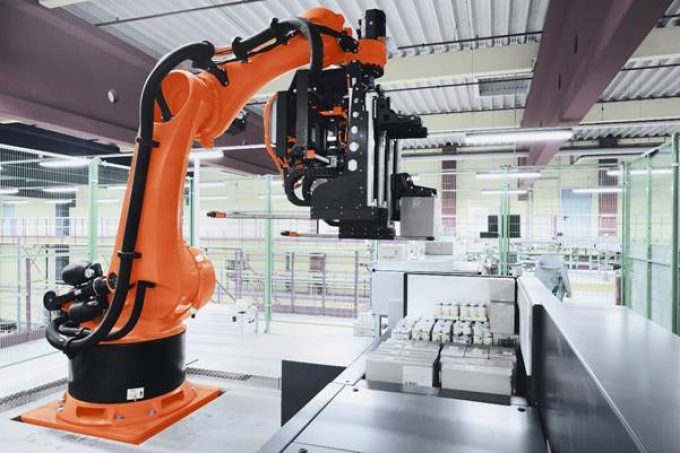3PLs look for return of growth as competition grows and revenues fall
3PLs have been facing a bundle of headwinds that have dented revenue growth for the ...
TFII: SOLID AS USUALMAERSK: WEAKENINGF: FALLING OFF A CLIFFAAPL: 'BOTTLENECK IN MAINLAND CHINA'AAPL: CHINA TRENDSDHL: GROWTH CAPEXR: ANOTHER SOLID DELIVERYMFT: HERE COMES THE FALLDSV: LOOK AT SCHENKER PERFORMANCEUPS: A WAVE OF DOWNGRADES DSV: BARGAIN BINKNX: EARNINGS OUTODFL: RISING AND FALLING AND THEN RISING
TFII: SOLID AS USUALMAERSK: WEAKENINGF: FALLING OFF A CLIFFAAPL: 'BOTTLENECK IN MAINLAND CHINA'AAPL: CHINA TRENDSDHL: GROWTH CAPEXR: ANOTHER SOLID DELIVERYMFT: HERE COMES THE FALLDSV: LOOK AT SCHENKER PERFORMANCEUPS: A WAVE OF DOWNGRADES DSV: BARGAIN BINKNX: EARNINGS OUTODFL: RISING AND FALLING AND THEN RISING

THE WALL STREET JOURNAL reports:
A robot army is doing training drills in a narrow warehouse by the Brooklyn-Queens Expressway.
Behind loading-dock doors covered in graffiti, the chunky metal machines navigate a 23-foot-tall structure stacked with blue plastic bins, sliding up, down and across metal racks as they select bins and move them to the warehouse floor. Down below, dozens of low-slung, mobile robots that resemble Roomba vacuums sweep along to move the bins to stations where human workers will finally get their hands on the goods.
The intricate dance, choreographed by software and executed with automation, powers a strategy known as microfulfillment. It is aimed at speeding up the delivery of goods to consumers in cities through operations that pack large numbers of products into tight, urban spaces.
The sites are far smaller than the typical sprawling, labor-intensive distribution centers in remote industrial parks, and they are becoming a new focus for retailers adjusting to the dizzying changes in consumer markets. Some merchants had been testing compact fulfillment sites in recent years, but the rush to online shopping during the coronavirus pandemic is accelerating moves toward space-saving, automation-powered warehouses.
By squeezing those operations into urban warehouses and the backs of stores, businesses hope to pare delivery times so online orders reach their destinations in hours, not days.
The site in Brooklyn, a former depot for New York City street vendors, is dominated by the 7,500-square-foot automated storage and retrieval system from U.S.-Israeli robotics provider Fabric, which also will run the facility when it goes live next year.
Fabric co-founder and Chief Executive Elram Goren said companies storing goods at the site should be able to get orders picked and packed in five minutes or less with only a handful of workers.
“We’re looking at a very small number of people,” Mr. Goren said. A smaller system in Tel Aviv with four operators can process as many as 1,000 orders a day, he said.
Fabric plans to open another site in Long Island City in Queens next year, with the aim of adding another two in New York City to form an urban logistics network that could serve multiple brands or retailers.
Most microfulfillment operations are still being tested, but the strategy is gaining interest as grocery chains and other retailers scramble to meet rising e-commerce demand during the pandemic. The market for automated grocery microfulfillment centers is estimated to be worth $1.2 billion by 2024, according to market-research firm Interact Analysis.
Texas-based grocer H-E-B LP is working with warehouse technology provider Swisslog Holding AG to install several automated microfulfillment systems that will support the chain’s curbside pickup and delivery business, Swisslog said in September.
To read the full post, please click here (sub may be required).
Comment on this article